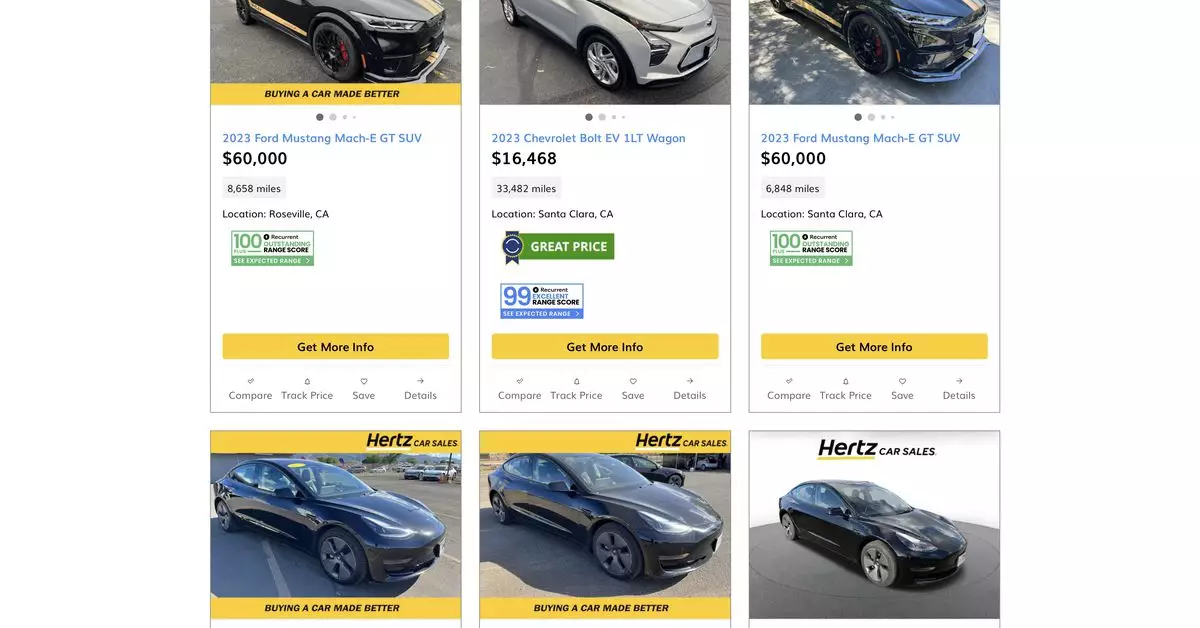In recent years, the electric vehicle (EV) market has gained immense traction, captivating consumers with promises of sustainability, efficiency, and advanced technology. Rental companies like Hertz have not shied away from embracing this trend, initially investing heavily in electric models to attract environmentally conscious renters. However, the journey for Hertz hasn’t been smooth; fluctuating demand, coupled with issues regarding maintenance and repairs, led to a notable re-evaluation of its ambitious electrification plans.
Hertz has recently introduced a novel strategy for its rental customers, allowing them the option to purchase the EVs they have been renting. This initiative offers significant savings and benefits, as illustrated by individual experiences shared on platforms like Reddit. For instance, one renter of a 2023 Tesla Model 3 reported a surprising purchase offer of $17,913, a price that aligns closely with comparable listings in Hertz’s car sales inventory. Despite the vehicle having around 30,000 miles on it, the deal appears competitive, suggesting a calculated effort by Hertz to facilitate smooth transitions from rentals to ownership.
In another instance, a renter of a 2023 Chevy Bolt was presented with a purchase price of $18,442, while a Polestar 2 enthusiast mentioned an offer of $28,500. These offers not only pique interest but also highlight Hertz’s intent to convert rental experiences into acquisition opportunities, enhancing customer engagement in a saturated market.
One notable feature of Hertz’s selling strategy is the limited warranty accompanying these used vehicles. Each car comes with a 12-month, 12,000-mile powertrain warranty, providing a safety net for buyers who may be wary of purchasing a vehicle that has already been used. Additionally, Hertz offers a buy-back option within a week of the purchase, which adds a layer of confidence for consumers, reassuring them that they are not locked into a regrettable decision.
Hertz’s Communications Director, Jamie Line, elaborated on the rationale behind this strategy, clarifying that it is not exclusively an EV initiative. The company aims to create a smooth connection between their rental customers and sales platform, thereby fostering awareness and generating sales through a unique marketing approach.
Though the drive towards electrifying its fleet faced setbacks, such as the decision to halt orders for certain models like the Polestar 2 later in 2022, Hertz’s innovative selling approach signifies an adaptive strategy. By tempering its ambitions to focus on the present demand, Hertz aims to leverage its existing assets more effectively. The strategic alignment of rental services with sales channels highlights a broader trend where companies must pivot dynamically according to consumer preferences.
Hertz’s move to offer rental customers the opportunity to purchase EVs they have been using reflects a creative approach to address fluctuating demand and consumer interests. This initiative not only benefits the renters but also demonstrates Hertz’s commitment to evolving alongside the electric vehicle sector amidst a transformative automotive landscape.


Leave a Reply
You must be logged in to post a comment.